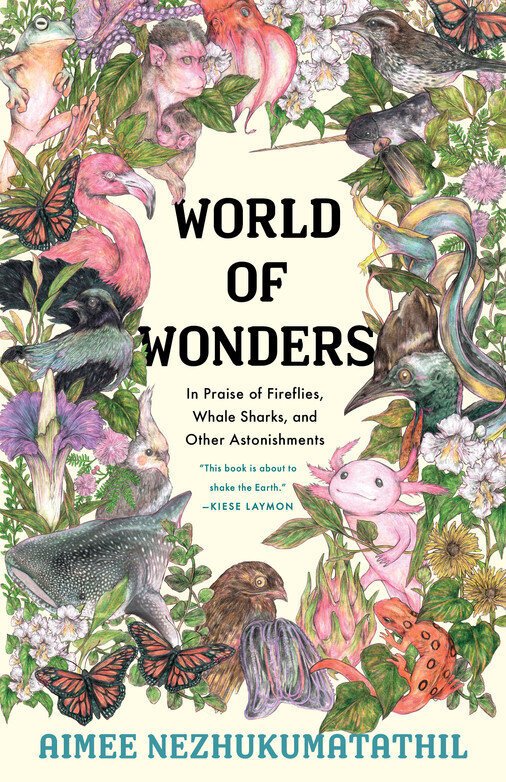Meghan Collins
The educator in me reveled in Aimee Nezhukumatathil’s sense of wonder as I read World of Wonders: In Praise of Fireflies, Whale Sharks, and Other Astonishments. One of the educational philosophies dearest to my heart is that approaching learning every day with a beginner’s mind opens us up to greater discovery. I found kinship in Nezhukumatathil’s approaching life through a sense of awe, along with her adventures in both scientific and personal realms.
I imagine her approach to teaching is the same. I would jump at the chance to be a learner in her classroom or alongside her explorations of unique environments. A good educator is not only an expert in their subject matter – they understand the mind of a learner and how to build a pathway forward from that place.
In science, there are certain fields of study that take reductionist approaches to exploring the world around us, seeking to distill phenomena to their smallest parts to make sense of them. Yet there are other approaches to science that encourage a view of the parts in the context of the whole to make meaning. As science educators, we can encourage sense-making that helps learners observe the connections between things and patterns across scales to begin to know the system as a whole. The magic of Nezhukumatathil’s writing is that she uses symbolism and stories with multiple layers of meaning, asking us to view the interaction of elements to understand them as components of something larger than themselves.
In that way, Nezhukumatathil’s writing is deeply relatable through her use of metaphors of wildlife and the elements of her own story. She highlights phenomena of the world around us that drew me in with her to observe biodiversity while reflecting on my place in it, and my place on my own journey as an educator, friend, family member, and citizen of the planet. The animated descriptions of these creatures, some commonplace and some rare, were a passageway for me to connect with Aimee and her inner world and the elements that we hold in common (including a love for the red-spotted newts of Western New York, and the fact that my mother also used to work in Gowanda).
In a moment in history when it is easy to feel despair for the state of our environment and social divisions, Nezhukumatathil’s colorful stories are an uplifting reminder of the precious species worth fighting for and the humanity that we do in fact have in common. I am grateful Aimee creates this wonder for her students and for her readers alike.
What I liked most about her stories, and the emergent story whispered through the collection of experiences of awe, is that this is a book about finding home. She reminded me that home is not just one place. It is where we create memories, where we learn, where we stretch and challenge ourselves, and perhaps also where we choose to leave.
Meghan Collins joined the Desert Research Institute (DRI) in June 2015. In her current position as Education Program Manager, she works to expand experiential learning and career-based STEM opportunities and translate the valuable results of DRI science to our communities.
As part of her science communication efforts, Meghan co-hosts the Science Distilled lecture series in collaboration with the Terry Lee Wells Nevada Discovery Museum. Meghan also leads citizen science programs including Tahoe Rain or Snow and Stories in the Snow. She has also been involved as an educator/science communicator in a range of other programs, including Native Waters on Arid Lands and the new microplastics research program at DRI.


